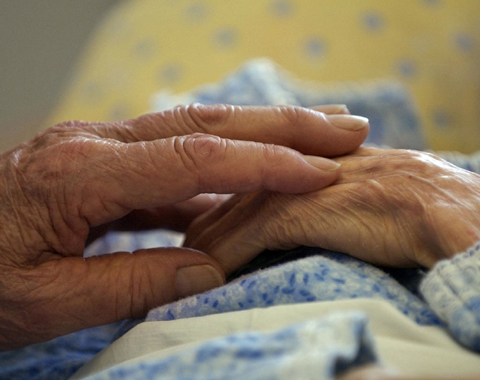I'm terrified of doctors. That does make things awkward when I erroneously conclude every once in a while that I'm dying, since I'm more frightened of visiting one than I am of untimely expiring.

It doesn't help that recent studies (yes, yes, which can be debunked tomorrow, but I'm still referencing them) are showing that we currently have too much medicine in our lives. The annual checkup has been taken off that table, as are a number of yearly tests that were considered mandatory. Stress does a great amount of damage on the body, to the point that the potential benefits from early detection are being questioned.
Atul Gawande's book, Being Mortal, is a best-seller discussing the contemporary perversion of the end-of-life experience. I can testify to it myself, seeing how my Babi suffered when she eventually passed away a number of years ago.

The outline of the book are discussed in this review by Janet Maslin. Doctors today are taught to believe they can "fix" any illness or condition, and drawing life on is considered the goal, even if there is extreme pain. Patients, too, do not make it easier on their doctors, insisting that any existence is better than death, only to change their minds too late.
There are more old people on Earth than have ever been before, and not enough doctors specializing in geriatrics, who could help them enjoy a better quality of life instead of being farmed into nursing homes.
. . . being honest, serious and empathetic, showing he is wholly on the patient’s side. It won’t work miracles. But it’s the best a doctor can do.
On the other end, childbirth has become a serious medical arena, chock full of drugs and scheduled C-sections. It had been thought until now that overtime in the womb didn't matter; but new data shows that the longer in the tummy, the better ("Heavier Babies Do Better in School").
The results also play into a larger issue: the growing sense among many doctors and other experts that Americans would actually be healthier if our health care system were sometimes less aggressive. . .
These issues are part of a debate that extends well beyond childbirth. The notion that Mother Nature should more often trump Pitocin and other induction drugs fits with a broad questioning of the American health care system, famously the world’s most intensive and expensive. Starting about a decade ago, an inchoate group of reformers — doctors, nurses, hospital executives, social scientists and others — began pushing the idea that there was a better way. Yes, intensive medicine can bring lifesaving benefits, but technologically advanced treatments often don’t work any better than more basic forms.
I'm not one to throw the baby out with the bath water (so to speak); of course modern medicine has granted us longer, healthier lives never before seen in history. But too much of a good thing does exist. Just because a method of treatment works for one patient does not mean that it benefits another.

I know of individuals who placed their health completely in the hands of drugs and surgeries, refusing to alter their lifestyle at all, since they believed that medicine = magic. Their current quality of life doesn't have much quality to it.

Doctors are not miracle workers; they should not be deified, no matter how much Jewish mothers sigh over them. There rarely is such a thing as a "quick fix"; if an illness can be managed by a change in lifestyle rather than pills, go for it.
Best punchline ever: Oh that's just God. He's thinks He's a doctor.
ReplyDelete